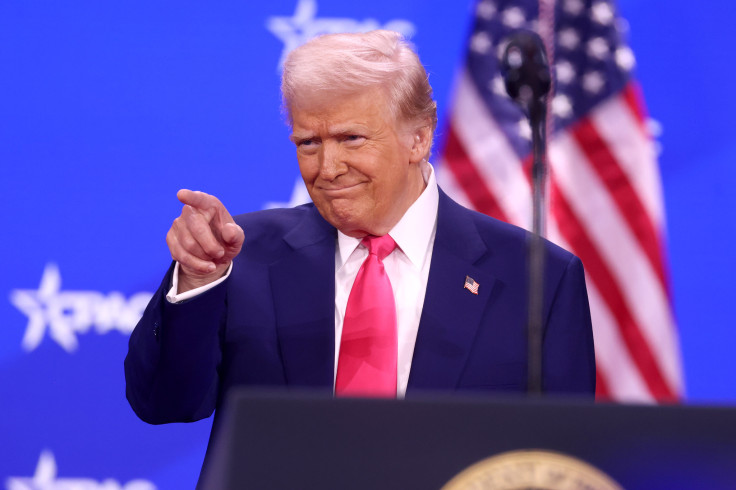Trump's Bold NYC Funding Threat Ignites Political Firestorm Amid Mamdani Election Showdown
Trump's NYC funding threat over Mamdani's election sparks outrage and intensifies political tension nationwide.

Donald Trump has reignited political tensions after threatening to withhold federal funding from New York City if progressive candidate Zohran Mamdani wins in the upcoming elections. The former president's remarks have stirred controversy nationwide, drawing criticism from both political analysts and civil rights groups who view the move as political coercion.
Trump's Funding Threat Sends Shockwaves Through New York Politics
The controversy began when Trump suggested that a Mamdani victory would lead to the loss of federal support for key New York City projects. His comments came as part of a wider discussion on federal resource allocation and governance priorities, but the message was clear: a city that elects officials he deems unfit could face fiscal repercussions.
New York City, a Democratic stronghold, has long been a target of Trump's political rhetoric. During his previous administration, similar threats were issued over immigration and law enforcement disputes. This latest warning, however, comes amid an already tense election season, heightening concerns that the former president is using financial leverage to influence local democratic outcomes.
Political observers noted that such statements reflect Trump's broader strategy of framing Democratic-led cities as fiscally irresponsible and undeserving of federal assistance. While his supporters praised the stance as a stand against what they perceive as radical progressivism, critics argued that it undermines the autonomy of local governments and sets a dangerous precedent for political retaliation.
Mamdani's Campaign Under the Spotlight
Mamdani, known for his progressive stances and advocacy for working-class communities, has become a focal point of political debate following Trump's remarks. A state assembly member of Ugandan-Indian descent, Mamdani's rise in New York politics has been marked by calls for social housing reform, climate justice, and equitable taxation. His growing popularity among younger and minority voters has made him a symbol of the city's shifting political landscape.
Trump's intervention has, ironically, given Mamdani more national exposure. His campaign has used the controversy to reinforce themes of independence and resistance to political intimidation, framing the threat as proof of the need for stronger democratic values. Analysts have pointed out that such conflicts often galvanise progressive voters who view federal interference as an attack on local governance.
Despite the polarised responses, Mamdani's team continues to emphasise policy-driven campaigning rather than personality politics. The candidate's focus remains on addressing the cost of living crisis, improving public services, and promoting inclusivity, all issues that resonate deeply with New Yorkers facing economic uncertainty.
Political and Legal Implications of Trump's Statement
Trump's statement has raised questions about the limits of federal authority and the potential misuse of executive influence. Legal experts warn that conditioning federal aid on electoral outcomes could violate constitutional protections and open avenues for litigation. The principle of equal protection and the autonomy of state and local governments form a critical part of the American political framework, and any attempt to withhold funds based on political preference would likely face judicial scrutiny.
Furthermore, this controversy highlights the continuing friction between Trump's populist base and the Democratic establishment. While his comments appeal to those frustrated with liberal city administrations, they also risk alienating moderate voters who view such tactics as undemocratic. Political commentators note that Trump's rhetoric mirrors strategies from his earlier campaigns, employing confrontation, provocation, and spectacle to dominate the public discourse.
Trump says he will not give NYC federal funds if Mamdani wins while promising to give $20B to Argentina.
— Ron Smith (@Ronxyz00) October 14, 2025
How is this America First?
This is election interference. Blue states should stop sending tax $$ to the federal government. pic.twitter.com/N6V4QZBybv
At the same time, the White House and congressional leaders have largely avoided direct comment, possibly to prevent escalating partisan conflict. However, the debate over the use of federal funding as a political weapon underscores a growing concern: that governance in the United States is becoming increasingly transactional, tied to ideology rather than public welfare.
Trump's threat to cut New York City's funding if Mamdani wins has ignited a fierce debate about democracy, governance, and political integrity. Whether it strengthens Trump's influence or boosts Mamdani's progressive appeal, the episode exposes deep divisions in American politics and the growing risks when power and policy collide.
© Copyright IBTimes 2025. All rights reserved.




















